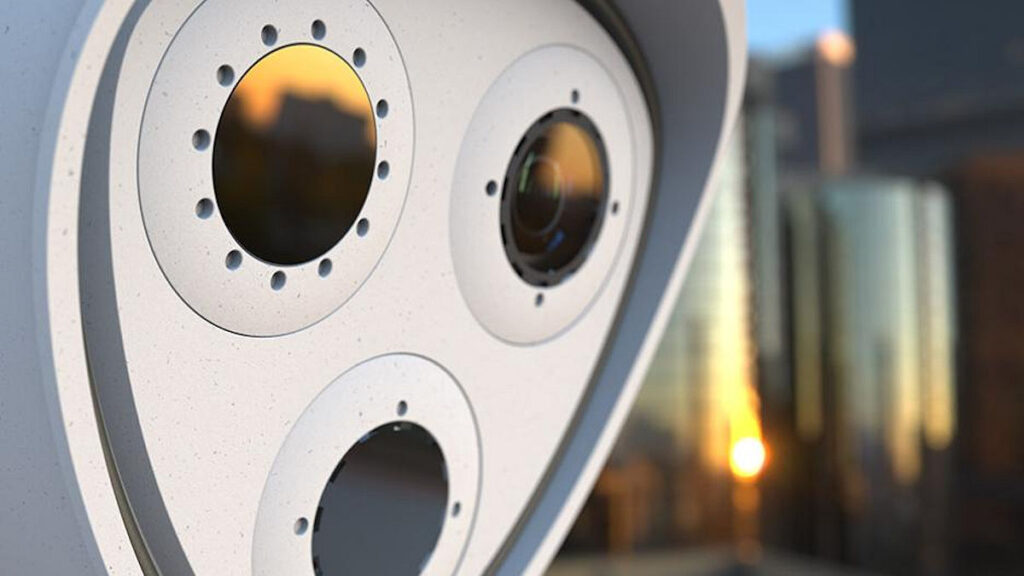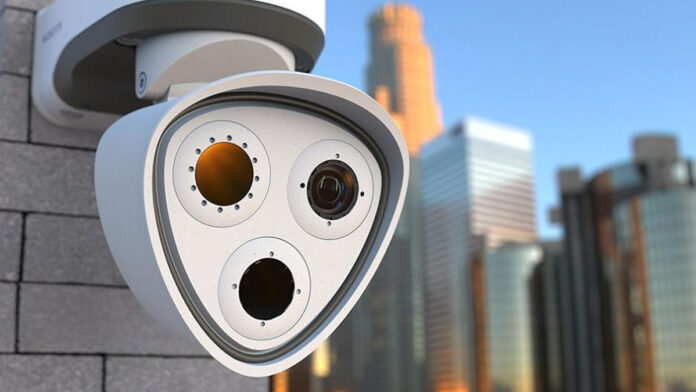What Is the Perfect External Security Sensor In SEN’s Opinion?
What is the perfect external security sensor? This is an interesting question, given the different detection technologies on the market.
It’s tempting to say the best security sensor is a well-designed alarm system of overlapping zones that uses differing detection technologies installed in layers – gate trip, external curtain, external volumetric with camera, door reed vibration, glass break, internal volumetric with camera – there’s truth in this but perhaps it dodges the question.
In our opinion the best single security sensor has long range, a wide angle of view, works day and night, is not impacted by ambient weather conditions, can detect intrusion through smoke and dust and shrubs, can detect slow moving intruders, and can be calibrated very accurately for range.
If you were thinking a traditional sensor it might be hardwired or quality long-range wireless, sunshaded, ventilated, camera-linked (driving alarm input and reporting as alarm event with footage), or a camera integrated, insect-protected, quality lensed, and featuring a high end dual technology sensor engine.
What Is the Perfect External Security Sensor
The installation parameters count, too. The perfect external sensor needs to be installed out of reach and well within its maximum detection range to retain catch performance in challenging weather conditions, direct sunlight and glare.
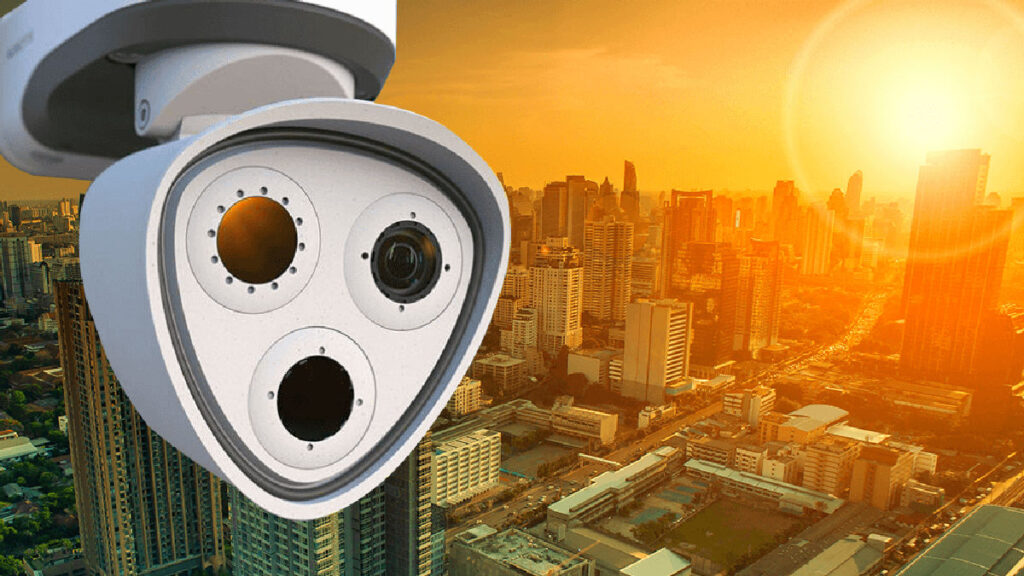
All this said, a thermal surveillance camera like the Mobotix M73 IoT camera running MxAnalytics would be very hard to beat in this role. Thermal is great for movement detection and, when matched with IVA, it’s able to filter out most sources of false alarm, as well as being able to learn its environment.
Thermal can see in the dark, is long range, detects warm bodies moving or still, can detect body heat among shrubs and long grass, can see through smoke, dust, snow, rain and fog. It will detect vehicles at long range, too, which a perfect sensor ought to be able to do if it possibly can.
Heavy downpours would challenge an external dual technology sensor but they wouldn’t impact on thermal camera performance.
Obviously, the perfect sensor also has to be connected to a robust, comparatively inexpensive system that can be remotely monitored across multiple comms paths for rapid response, is easy to manage and delivers notifications to professional monitoring stations and security teams in real time.
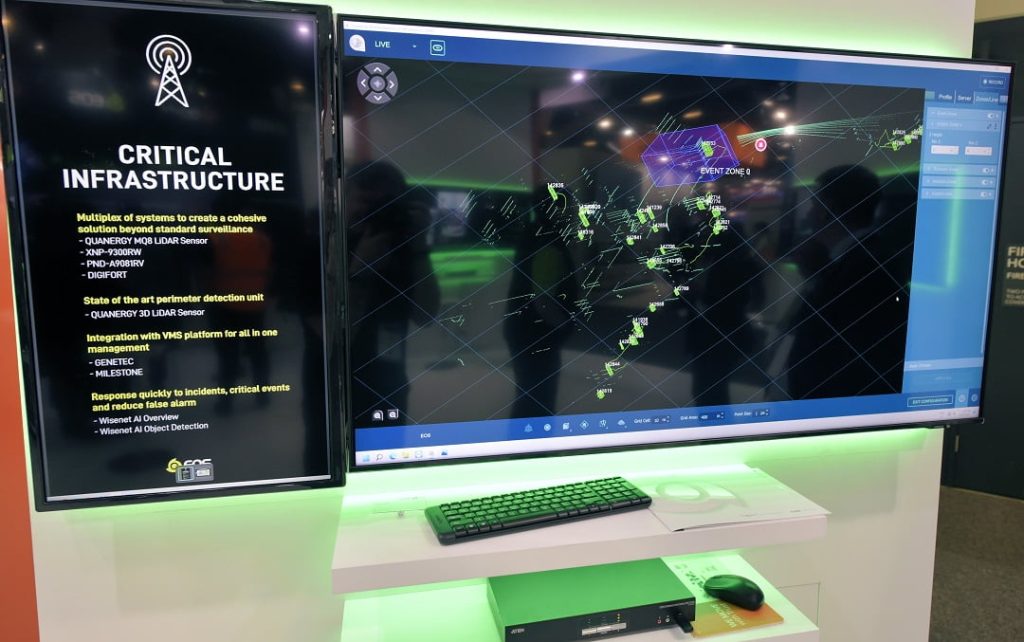
Is there space in the market for a low res thermal imaging alarm sensor? Definitely there is but it would have to incorporate an optical camera as well. On the strength of all these observations, we’d say the perfect external sensor remains an open-ended conversation and in the mean time, it probably is a well-designed alarm system.
Another technology to consider is Optex REDSCAN range, which uses pulsed laser light to measure ranging and ambient backscatter in order to detect intrusion events.
REDSCAN PRO can very accurately detect intruders to a range of 50m x 100m and by creating rectangular as opposed to circular (fan-shaped) detection patterns, there are no unnecessary overlaps.
REDSCAN PRO features intelligent multiple zones logic. This means that for each detection zone, the sensitivity, target size and output can be configured independently, allowing the zone’s risk and location to be adapted and provide maximum capture rate with minimum nuisance alarms.
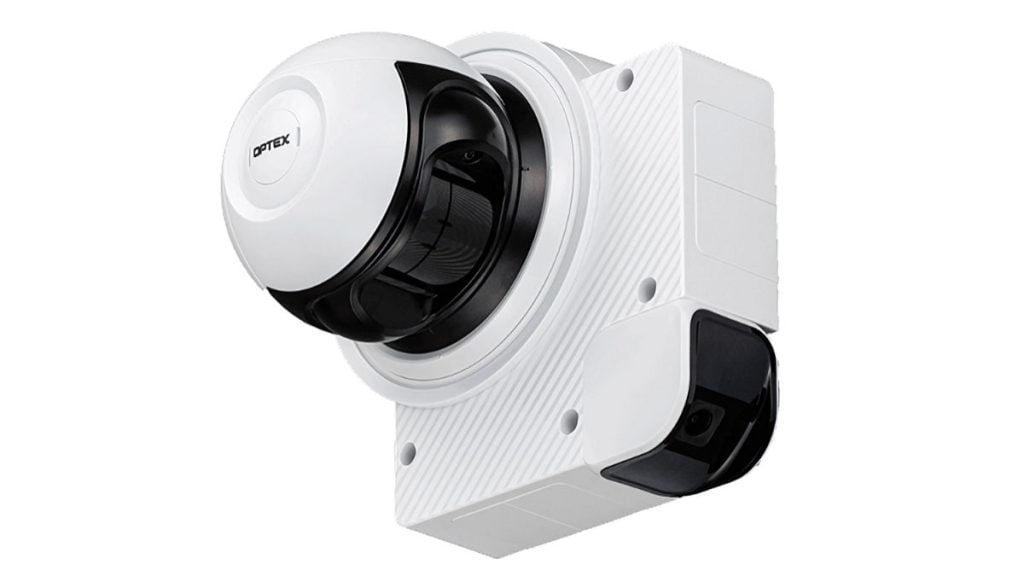
The sensor’s camera module brings visual assistance for configuration and post-alarm analysis. When an alarm is created, a file is saved with alarm log and video image. It helps security teams reviewing the alarms and checks if any action needs to be taken or if the settings need to be adjusted.
REDSCAN Pro series includes the RLS-3060V with a range up to 30 x 60m and the RLS-50100V up to 50 x 100m – there’s also a new MiniPro with a 20 x 20m range. Local distributors have more information.
Lidar solutions are also available from EOS – these include Ouster and Hexagon sensors, which combine Lidar, 3D mapping, AI and more, to provide next-gen external detection solutions in complex high security environments.
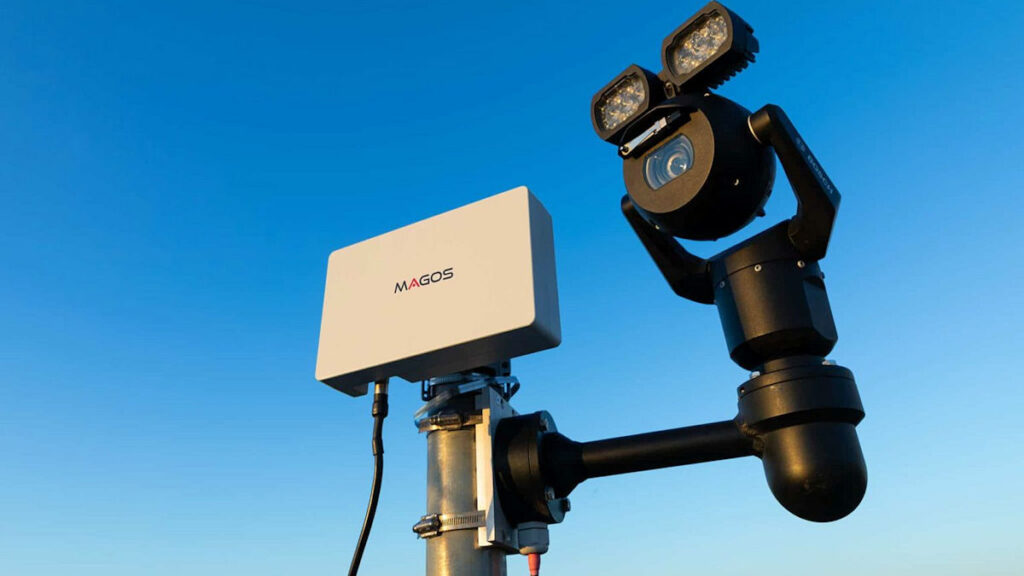
You can enquire about Lidar from EOS here, about REDSCAN here, about thermal cameras for intrusion and fire detection here and read more SEN news here.
N.B. A technology we have not mentioned above is the Magos range of ground radars. These have a solid spec out to 1000 metres with a detection angle of 120 degrees – there’s more about them here – the local distributor is Perimeter Systems Australia.
“What is the perfect external security sensor?”
